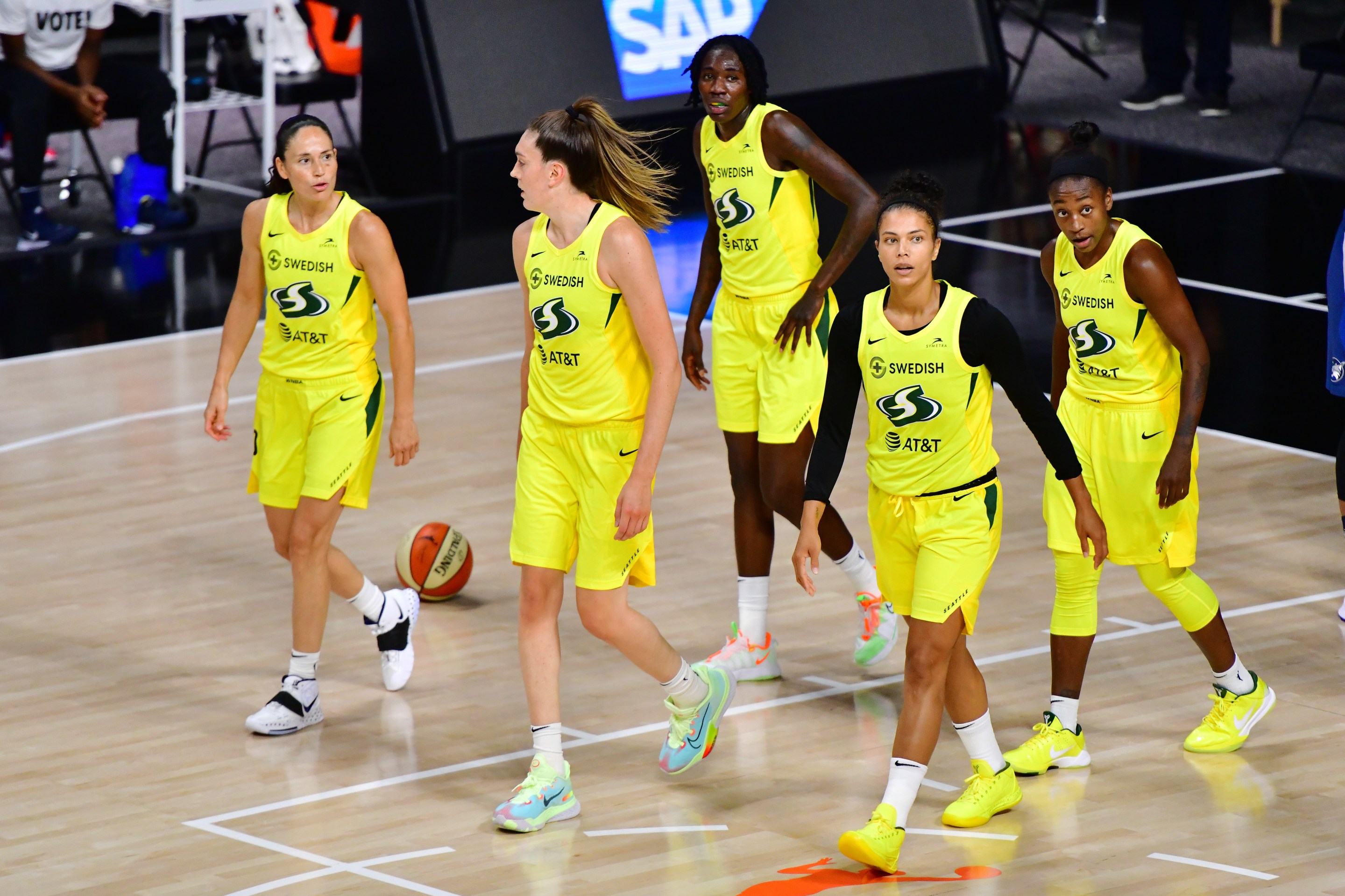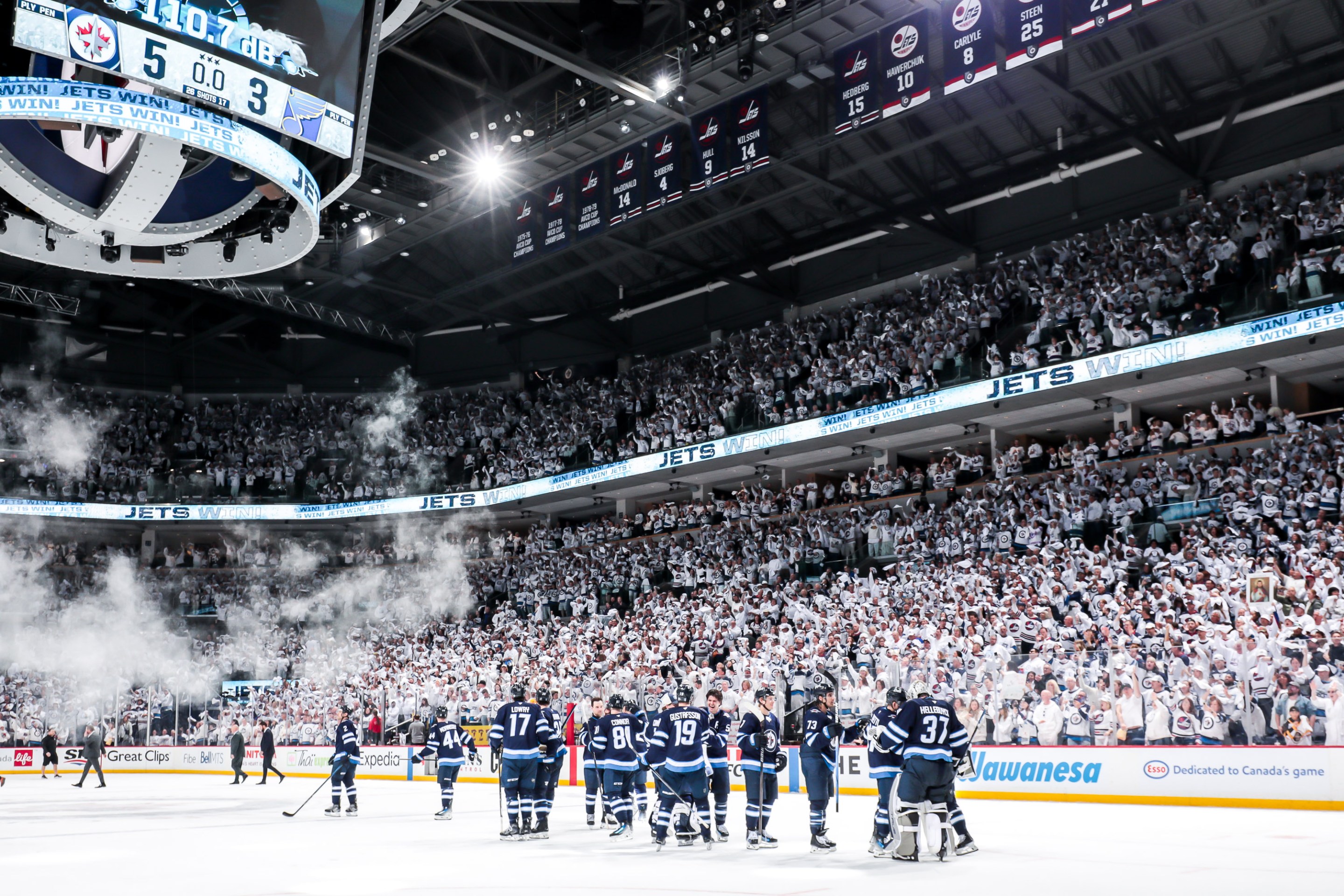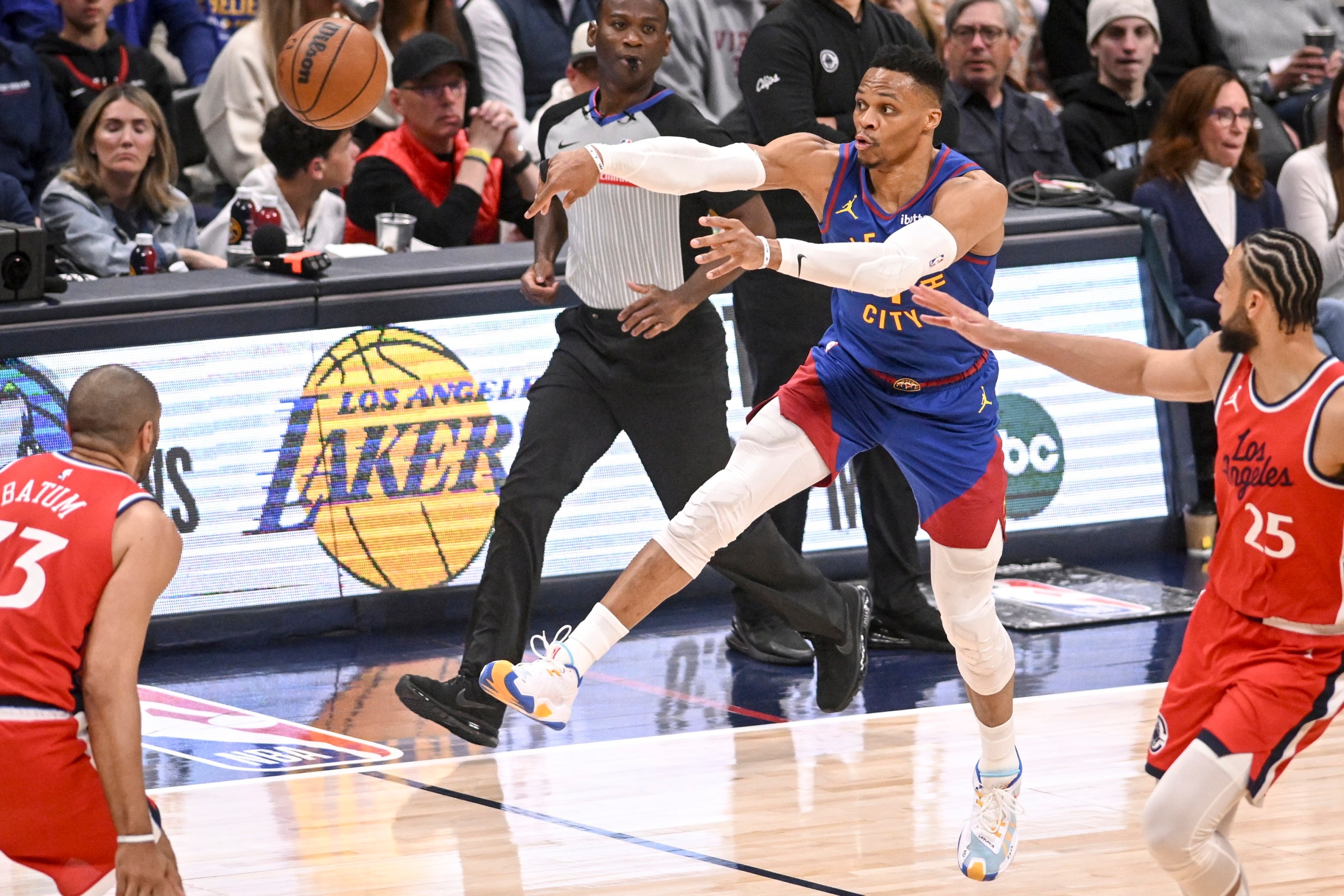Do you sometimes think back wistfully to your favorite team’s glory days? Or are you a fan of the Seattle Storm, for whom the glory days never ended and for whom they maybe never will? Tonight, against the Las Vegas Aces, the Storm make their fourth appearance in the WNBA Finals. If they win—and they’ve never lost a Finals series—they’ll have earned those four championships in three different decades.
Stability and longevity aren't words often thrown around when talking about WNBA teams, which change hands, rebrand, and relocate at a dismaying pace. Seattle is a remarkable exception: a legitimately storied WNBA team whose tough spells don't come easily to mind. The past can be fondly remembered; the present couldn't be much better; and the future is so, so bright. If not yet by championships—the Minnesota Lynx and defunct Houston Comets each have four—by possessing a rare sense of continuity, the Storm are the WNBA's most successful franchise.
The Storm owe much of that to longevity personified: veteran Sue Bird, who turns (if you can believe it) 40 in two weeks. Bird plays her position in maybe the only way a point guard can physically afford to for 18 years, as a measured, pass-first floor general, never clamoring to take over a game, though not afraid to either. (In fact, the most recent trip to the Finals necessitated a takeover.) It feels almost dismissive to label an all-timer a "bridge" or "torch passer," but that is one of the special, telling things about Bird. She began her WNBA career at 21, dishing gorgeous, between-the-legs assists in the paint to Storm legend Lauren Jackson, a mid-aughts unicorn who scored from anywhere and remains the prototype of positionless women's basketball. Bird will probably end her career, 20 years later, feeding young forward Breanna Stewart, whose versatility brings to mind Jackson, and her invincibility on offense, former Seattleite Kevin Durant.
On her best days, Stewart looks like the greatest women's basketball player in history. As ESPN's Ryan Ruocco will undoubtedly remind you a few times per Finals broadcast, Stewart is 6-foot-4 with an incredible 7-foot-1 wingspan. Her high-arcing jump shots have a release point somewhere around nine feet, making her more or less unguardable. Gangly though she is, Stewart is fast and coordinated enough to play ballhandler. Watch her and wonder whether her mere existence shouldn't be against the rules. For fairness's sake, you think, she should have to play blindfolded.
Stewart arrived in Seattle as a first overall pick in 2016 after what I'll (with an eye roll) call a "bad year," in which the Storm finished 10-24 but still produced a Rookie of the Year in guard Jewell Loyd. To some clucking from her coach, Loyd left Notre Dame early to declare for the 2015 draft; she transitioned from point guard to shooting guard, where she plays fearlessly alongside Bird. The three were the core of a top-seeded 2018 team that swept Elena Delle Donne and the Washington Mystics in the Finals.
And then things seemed to fall apart. At her offseason gig on the Russian team Dynamo Kursk, Stewart tore her Achilles tendon, just a month before the 2019 season. Bird intended to play but her return from a back injury was delayed and delayed until the Storm announced late in the season she wouldn't be returning at all that year. Loyd missed significant time with an ankle injury. The reigning champions would not come close to defending their title.
But the Storm wouldn't be the Storm if they didn't make something absurdly good of their bad years. In Stewart's absence, her frontcourt partner Natasha Howard dominated defensively inside and won 2019 Defensive Player of the Year. She and her teammate Alysha Clark, an elite perimeter defender who can solve a mismatch in an instant, are behind the Storm's now league-best defensive rating. In the 2020 regular season, the Storm averaged a pretty incredible 10 steals per game.
Bench players accustomed to starter minutes in 2019 have made Seattle the deepest team in the WNBA. Bird's backup, Jordin Canada, a driving point guard with a mean crossover, stepped up last season and remains starting-caliber. The same is true of guard Sami Whitcomb, who last year became a threat from behind the arc. Whitcomb recently left the bubble to be with her wife for the birth of their child, but where the Aces are hobbled by injuries and opt-outs, Whitcomb will be the only player the Storm have lost.
The only remaining factor for Seattle was whether Stewart could manage a return to form following an injury that seldom permits one. Miraculously, she has. Stewart's scoring and rebounding averages this season are basically unchanged from her MVP season in 2018. Only a breakout year from A'ja Wilson of the Aces kept Stewart from winning that title again. Stewart was quiet at first in the semifinal round of the playoffs until the final game, where she went into what the eminent basketball minds call Absolute Sicko Gear, putting up 31 points—a vintage performance, and a reminder she's still got it.
This will all make Seattle very hard to beat in the Finals. The Aces won both regular-season matchups, though their heavy reliance on Wilson leaves them little margin for error. They have yet to face a Storm roster at full strength; Bird was out for both of those games, and Stewart for the second. The Aces play a thrilling, old-fashioned and deeply strange brand of basketball, but their wins have to be worked for. By contrast, the Storm make the game feel effortless. Wilson and the Aces are tough competition, sure, but no one ever gained much betting against Seattle.






